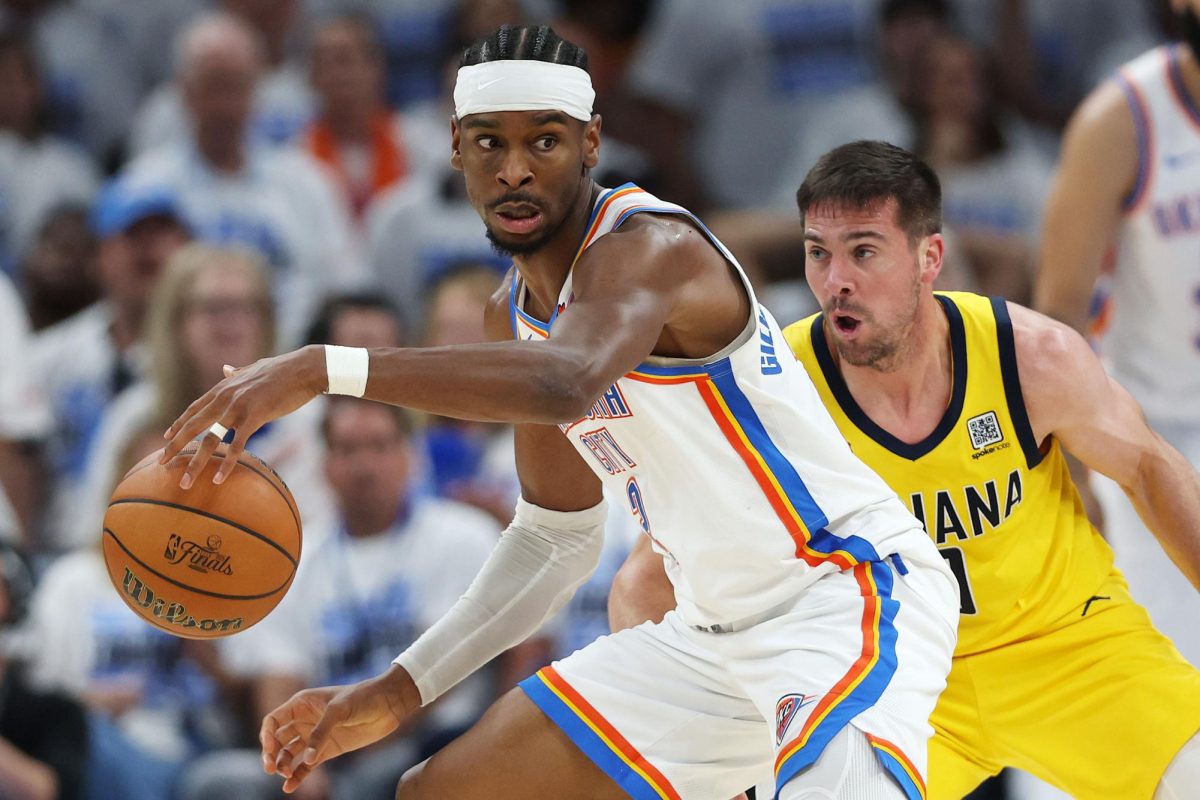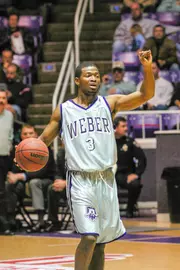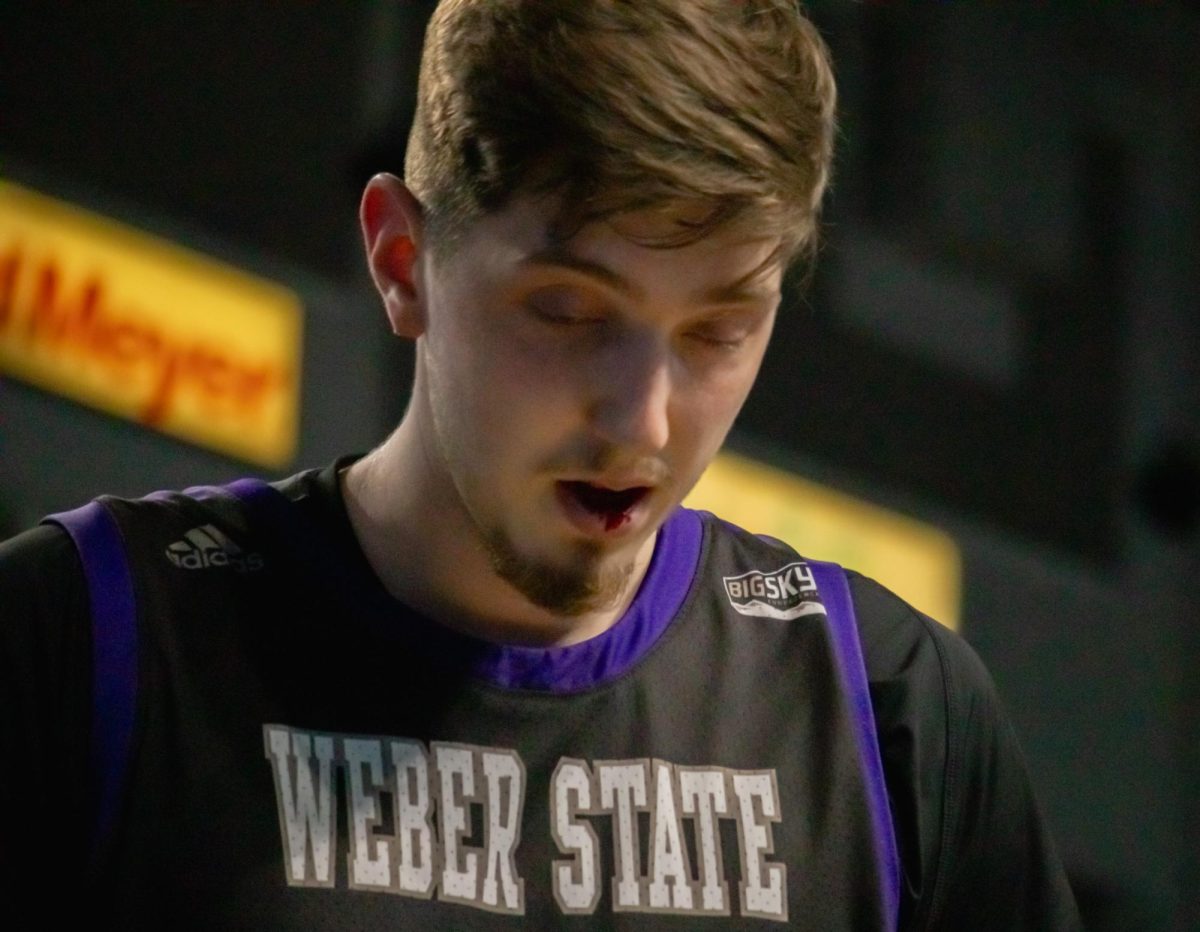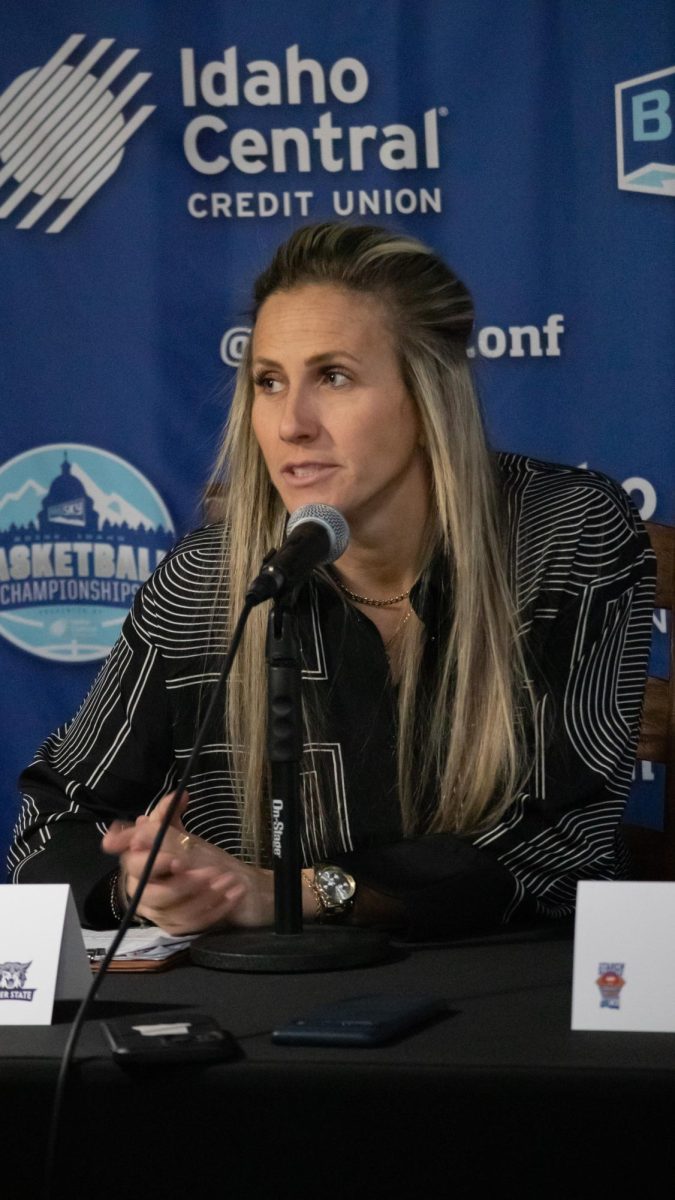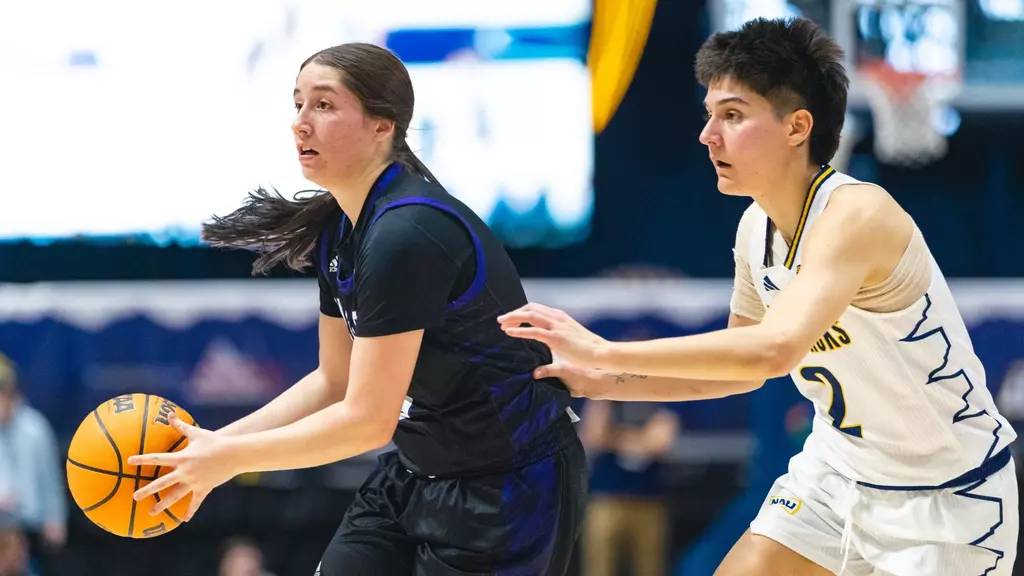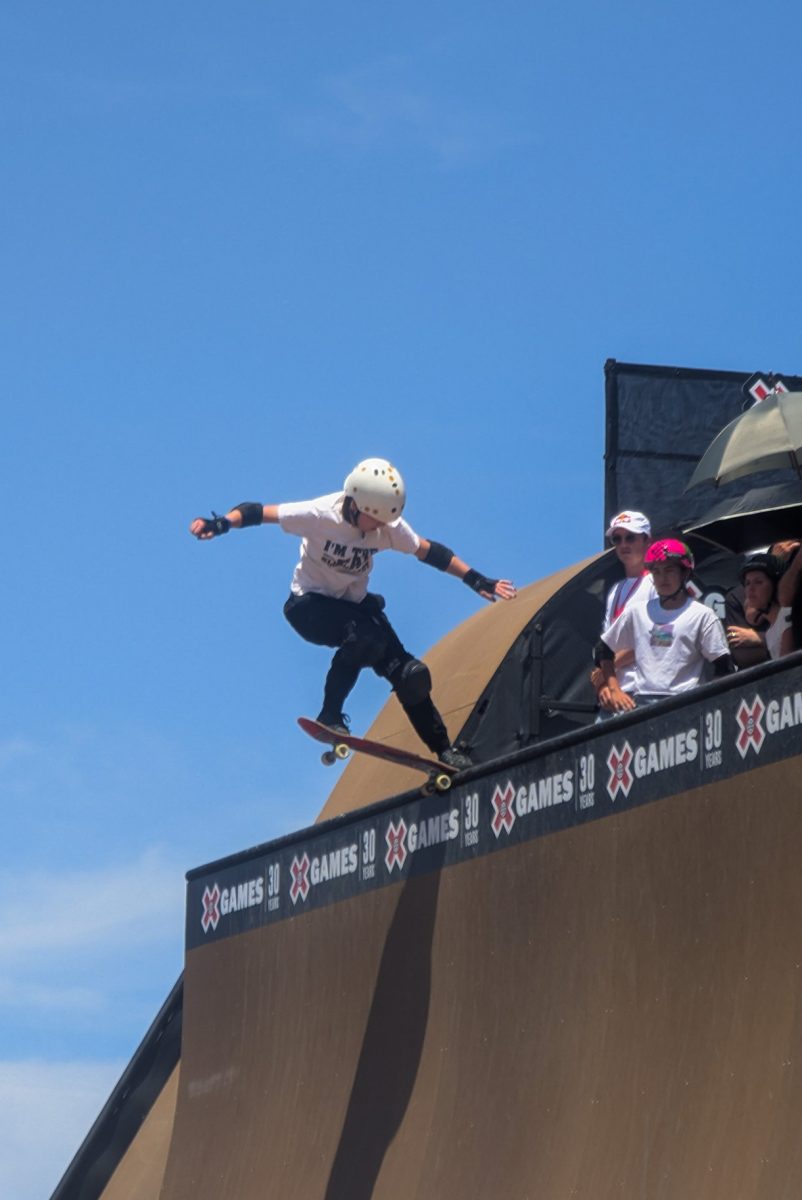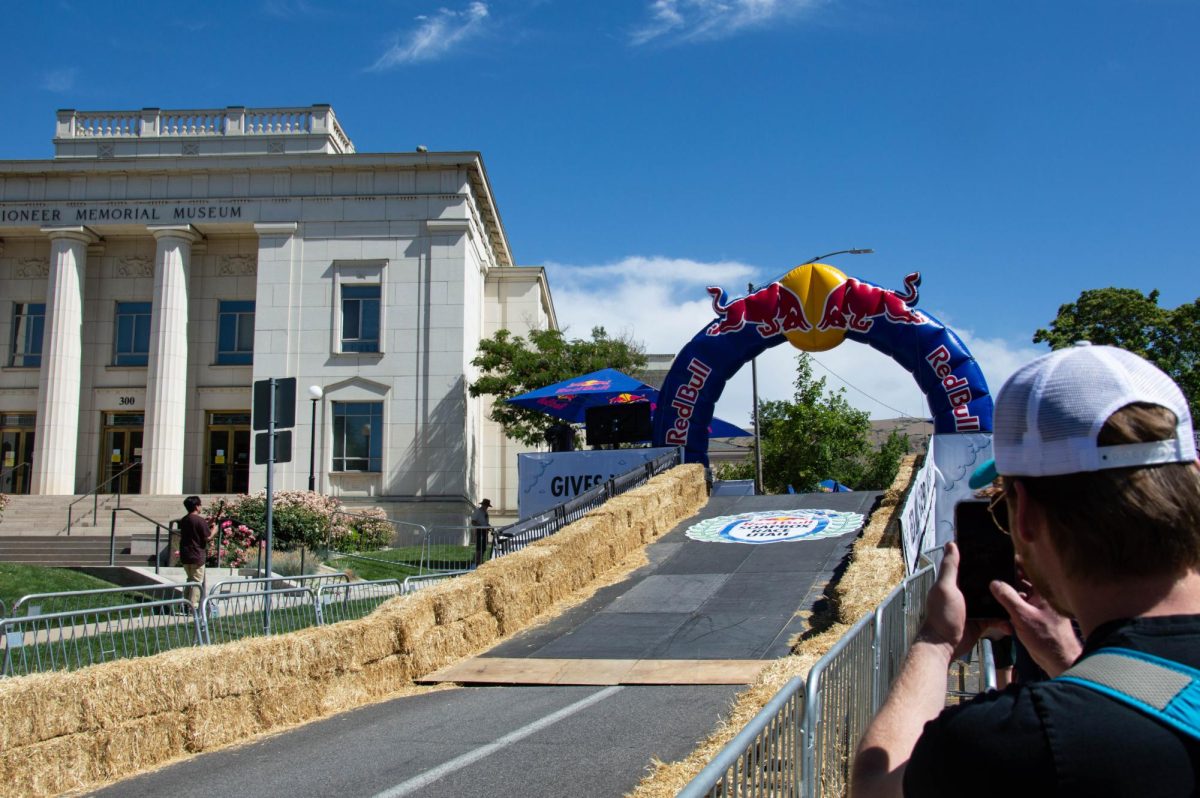More than 300 people gathered on Saturday to remember former Weber State University basketball player Brad Barton. Some were wearing suits; others were in basketball jerseys of some of Barton’s favorite players.
Barton, 31, died in his apartment last week in Price, Utah, where he was the head coach of Utah State University Eastern. While the cause of death has yet to be confirmed, it is thought to be related to diabetes, which Barton battled for more than half of his life.
Bret, Barton’s brother, said Barton did so much in his life, and lived so fully that, while he was 31, he lived the life of someone much older.
“To me, it’s a remarkable honor to remember the life of my little brother,” Bret Barton said. “Brad was 31, but we decided as a family that because of the way he lived . . . and the fact that he got by with much less sleep than anybody, he’s actually 62 years old in ‘Brad years.’”
Over the course of the nearly two-hour funeral service, speakers told stories that related Barton’s work ethic and character. Chris Craig, who was the head coach when Barton was hired as an assistant coach at USU Eastern, talked about his strong character and his competitive edge, relating an experience he had with Barton while playing tennis.
“I think he was up 5-1, 40-love,” Craig said. “The first time I finally hit a serve that was down the line, he dove off the ground, Superman. Knees and elbows were bloody, diving to the other side of the court. He gets up, bleeding, and I said, ‘Do you know the score?’ He stood up and said, ‘That point mattered.’”
Craig said that it wasn’t until after their game that he fully digested what Barton had said. He realized how that moment defined Barton. He said that, many times, people’s words and actions aren’t the same, but that wasn’t the case with Barton.
“His actions backed up every single word that came out of his mouth,” Craig said, “and I think that is something to be admired.”
USU Eastern Athletic Director Dave Paur said he would often spend time talking about historical leaders with Barton and trying to figure out how to relate that to coaching. Paur said that Barton was able to implement some of his love of history into his coaching.
“I’ll tell you this,” Paur said. “When he went into our gym (for practice), and those doors shut, it was done the Roman way, methodically.”
Paur said that, in the afterlife, he looks forward to playing a game of one-on-one against Barton. He said Barton was the toughest player he knows of, but that he feels he is a close second himself.
Joe Cravens, who coached Barton at WSU, said he didn’t know what to think when he first met him.
“I used to say Brad’s like a stray dog,” Cravens said. “He just shows up at your doorstep and you can’t get rid of him. In fact, he loved that story, and used to say, ‘Coach, I’m the best stray dog you’ve ever had.’ I would always say, ‘Yeah, now if we only can get you house-trained.’”
Cravens said that, through the time he coached Barton, he came to learn that he was a hardworking player who would do whatever it took to win, often bending the rules. He said Barton ruined every drill he had, and forced him to change the rules because he would always find loopholes.
Cravens also said Barton was always looking to get an edge and help his team win. He went on to say that if someone let Barton keep score, his team would always win. He shared a story about how Barton would always find a way to make sure his team would win in practice drills. He watched Barton’s team score a point, then the other team tied it, and he asked Barton what the score was.
“I walked down and said, ‘Brad, what’s the score?’ He said, ‘8-2, our team.’ I said, ‘Brad, you just started playing; it can’t be 8-2.’ He looked at me and said, ‘6-2, our team.’ I said, ‘Brad, you just started playing.’ He said, ‘Coach, do you know the exact score?’ I did, but I said no, and he said, ‘4-2, our team.’”
While all the speakers brought their own memories and stories of Barton, one message was consistent: that he was a great leader and friend, and left a lasting message for everyone he knew.
“If Brad is listening today,” Bret said, “and I think he is, he would say, ‘If you learn anything from me, learn this: Life is too short to hold grudges. Surround yourself with people who make you happy . . . read books. Laugh, cry, feel every emotion. Love your family. See the good in everyone.”


